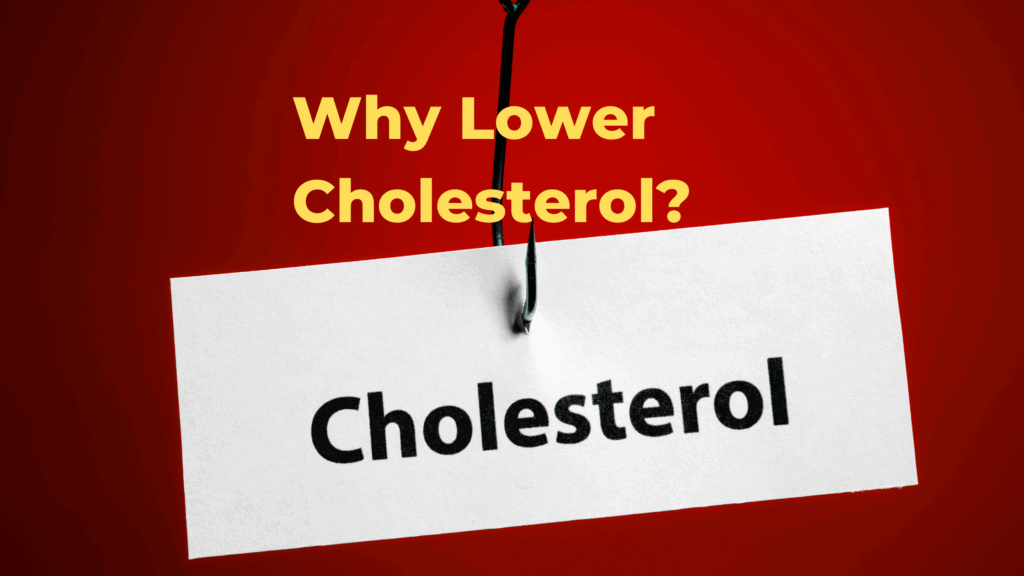Introduction
Why lower cholesterol? The main reason for cholesterol lowering is that high cholesterol affects millions worldwide. It’s a silent threat that can sneak up on you without warning. Many don’t realize how big of a role cholesterol plays in overall health. Taking steps to lower cholesterol isn’t just about fitting into your favorite jeans. It’s about protecting your heart, preventing serious illness, and living a long, vibrant life.
Understanding what cholesterol does in your body can help you see why managing it matters so much. The good news? You can make simple changes today that have a lasting impact on your health.
Table of Contents
Understanding Cholesterol and Its Role in the Body
What Is Cholesterol?
Cholesterol is a waxy, fat-like substance found in every cell of your body. It helps build hormones, vitamin D, and cell membranes. Your body makes all the cholesterol it needs, but you also get it from foods like eggs, meat, and dairy.
There are two main types:
- HDL (High-Density Lipoprotein): This is the “good” cholesterol. It helps clear excess cholesterol from your blood.
- LDL (Low-Density Lipoprotein): This is the “bad” cholesterol. When levels get too high, it can stick to artery walls and cause problems.
How Cholesterol Affects Heart Health
When you have too much LDL cholesterol, it can start to build up inside your arteries. This buildup forms plaque—a thick, hard substance that narrows your blood vessels. Over time, these blockages reduce blood flow and make your heart work harder. When a piece of plaque breaks off, it can cause a sudden heart attack or stroke.
The Connection Between Cholesterol and Cardiovascular Disease
Statistics show that nearly 20 million adults worldwide suffer from heart disease. High cholesterol is a major culprit behind this number. Experts agree that healthy cholesterol levels can significantly cut your risk of developing heart problems. Keeping your LDL low and HDL high is key to a healthier heart.
Why Lowering Cholesterol Is Crucial
Reducing the Risk of Heart Attacks and Strokes
Lower cholesterol isn’t just about numbers. It’s about saving lives. When cholesterol levels are under control, your chances of having a heart attack or stroke drop. For example, studies show that reducing LDL by just a small amount can cut heart attack risk by 20%. Many people have successfully improved their health by making simple changes, showing that it’s never too late to start.
Preventing Atherosclerosis and Arterial Blockages
Atherosclerosis happens when arteries become hard and narrow due to plaque buildup. This makes it tougher for blood to flow to your vital organs. By controlling cholesterol, you can slow down this process, keeping arteries flexible and open long-term. Maintaining healthy levels can help you avoid major blockages that lead to emergency health issues.
Lowering the Risk of Other Health Conditions
High cholesterol doesn’t just damage your heart. It’s linked to other health problems like diabetes and high blood pressure. These conditions often go hand-in-hand, increasing the risk of complications. Changes in diet, exercise, and lifestyle can boost your overall health by addressing multiple issues at once.
Strategies for Lowering Cholesterol
Dietary Changes for Cholesterol Control
Eating the right foods can make a big difference:
- Focus on fiber-rich options such as oats, beans, and fruits.
- Include healthy fats found in fish like salmon and mackerel.
- Snack on nuts and seeds to boost HDL.
Avoid or limit foods high in trans fats, like baked goods and fried snacks. Processed foods often contain hidden unhealthy fats that raise LDL levels.
Exercise and Physical Activity
Regular exercise boosts your good cholesterol and reduces bad cholesterol:
- Aim for 30 minutes of moderate activity, like walking or cycling, most days.
- Strength training two to three times a week can also help.
- Moving your body regularly keeps arteries healthy and improves blood flow.
Medications and Medical Interventions
If lifestyle changes aren’t enough, your doctor might suggest medications:
- Statins are the most common and effective drugs used to lower LDL.
- They are prescribed based on your cholesterol levels and overall risk.
- Medication combined with lifestyle changes offers the best results for many.
Lifestyle Modifications Beyond Diet and Exercise
Other habits matter too:
- Quit smoking—smoking damages arteries and lowers HDL.
- Limit alcohol intake; excess alcohol can increase triglycerides.
- Manage stress through relaxation techniques or hobbies.
- Keep your weight in check to reduce strain on your heart.
Monitoring and Maintaining Healthy Cholesterol Levels
Regular Check-Ups and Blood Tests
Getting your cholesterol tested regularly is important. Most adults should check their levels at least once every five years. Those with risk factors may need more frequent testing. When you get your results, your doctor will tell you if your levels are healthy or if adjustments are required.
Setting Realistic Goals and Tracking Progress
Your cholesterol target will depend on your overall health. A common goal is to keep LDL below 100 mg/dL. Tracking your progress using health apps or a journal can keep you motivated. Regular monitoring helps you see what works and make adjustments over time.
Long-Term Lifestyle Commitment
Managing cholesterol isn’t a quick fix; it’s a lifestyle. Small, consistent habits build lasting health benefits. Having support from family, friends, and healthcare providers keeps you on track and committed to your well-being.
Conclusion
Lowering cholesterol is one of the best ways to protect your long-term health. Simple changes—like eating smarter, staying active, and watching your weight—can have a powerful impact. Medications can help when needed, but lifestyle remains the foundation. Regular check-ups allow you to stay informed and adjust your plan.
The key takeaway? Your choices today set the stage for a healthier tomorrow. Take control of your heart health now, and enjoy life with fewer worries about future health issues. Speak with your healthcare provider to create a personalized plan that works for you. Your heart will thank you.
The best method to lower cholesterol is a supplement like Lypro-C.

